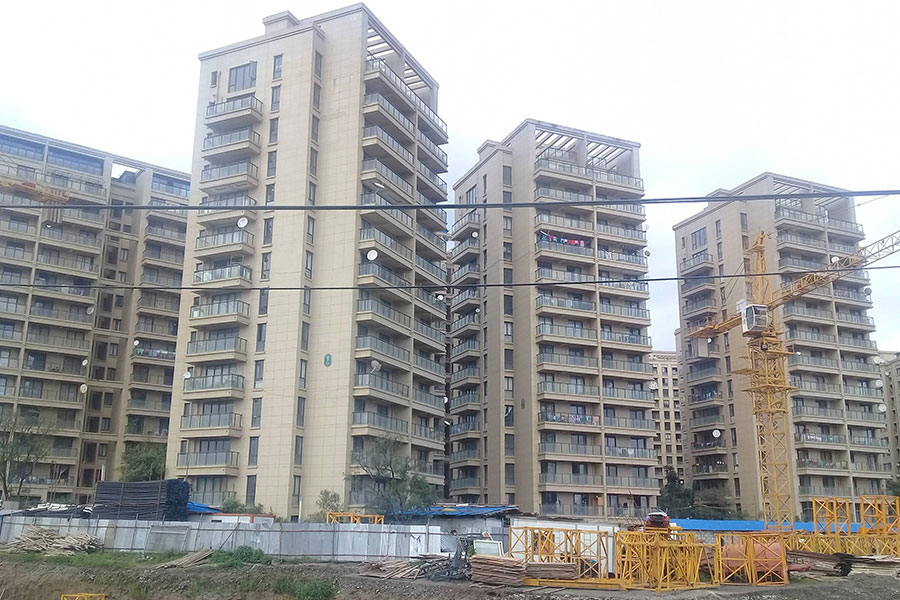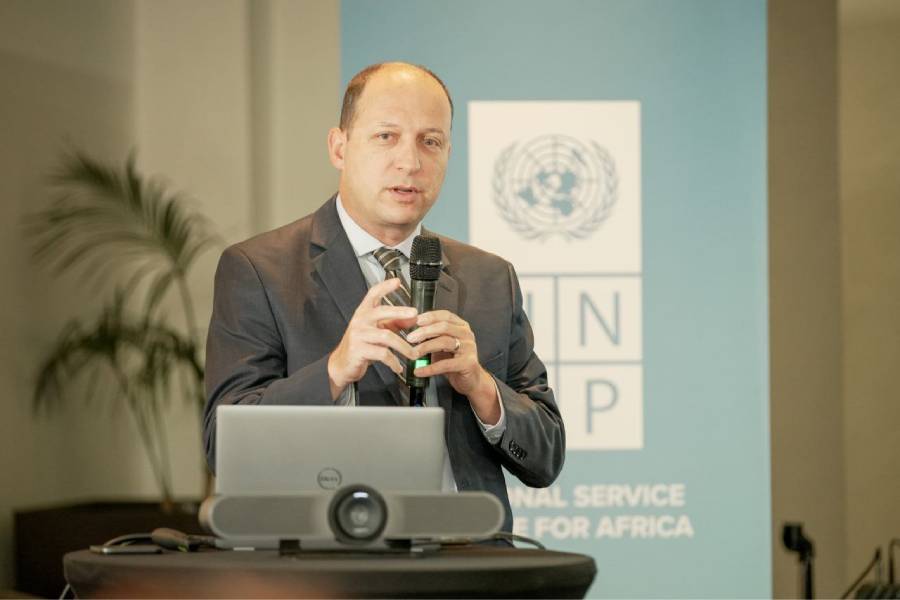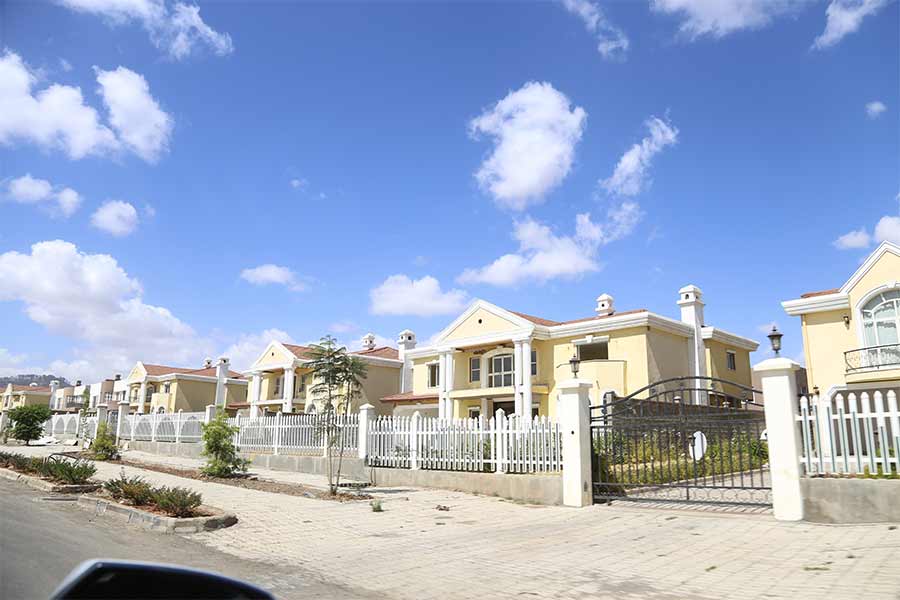
Exclusive Interviews | Jan 05,2020
May 11 , 2019
By Selwyn Blieden
For a long time, the most prominent players in the African property sector have been institutional investors such as private equity. It is also true that there has been an apparent gulf between demand and supply in all property sectors - commercial, industrial and residential - across many markets on the continent.
The investment proposition, often-repeated to prospective funders, regulators and local partners, was that by pioneering landmark projects, international investment and development teams would go some way to bridge this gulf. But few of those presenting this thesis have shown the success they predicted for themselves and their investors.
Asset realisations have taken longer and have been less profitable than expected. Some institutions have chosen to exit direct African real estate investment entirely. With few exceptions, large South African real estate investment trusts that expressed broader African ambitions have either closed their African operations or indicated that they intend to. Given its uneven performance record, an observer of the market might question the market thesis that seemed to be alluring only a few years ago.
Despite this, there is evidence to show that the African property market has evolved, just not in the way and for the segments previously expected. It is up to investors, financiers and other stakeholders to adapt their approaches to pursue the opportunities this market offers.
Since the end of 2015, the domestic bank-financed commercial property market in African countries such as Botswana, Zambia, Mozambique, Kenya, Uganda, Tanzania, Mauritius, Seychelles, Ghana and Namibia has grown in dollar terms at a compound rate of 9.5pc annually. This represents an acceleration in growth compared to the three years leading up to 2015 when the same market grew by 8.3pc.
This means that since 2012, and even more so since 2015, the growth of bank financing to many African property markets has been faster than the growth of the underlying economies in these jurisdictions.
Such growth could only have been possible if some combination of the following factors had been in place: the number and size of bankable projects and clients has increased; banks have become increasingly willing to undertake property finance; and the currencies in which property loans have been denominated have strengthened.
In all cases, the factors mentioned above are positive for the property markets we are targeting. Either the broader economies in which they are located are strengthening, as indicated by stronger exchange rates, or the property finance markets are becoming more active and formalised.
It bears repeating that not all African property markets are alike, and data covering multiple markets may often conceal wide-ranging differences between those markets and nuances within markets. There are two where the bank-financed property market has actually declined in the last four years. These are Mozambique and Uganda.
In Mozambique’s case, the decline of 8.8pc annually would be expected given the broader debt crisis in the country. In Uganda, the decline has been an annualized 2.1pc - less than the decline in the local currency over the period and thus indicating a market that is, at least, growing in local currency terms.
One of the largest property finance markets on the continent is Kenya. Its commercial property finance growth rate has been at 9.6pc over the past few years. Its currency has been relatively stable, ranging only from 99 to 105 Kenyan Shillings to the dollar over the period. The growth it has achieved is largely, therefore, a function of real growth in bank funding and property investment activity. Growth in this market has been led by market participants that would in South Africa or similar banking markets be classified as commercial or local corporate clients rather than institutional players.
It is evident that even though the most prominent segment of the investment-grade African property market has shown signs of strain, the broader bankable property market has been growing significantly and in the case of key markets such as Kenya, the growth is the result of real property activity and risk-taking.
For banks and other financiers, future growth may require broadening their target-range of clients and adapting their credit and service models for strong local players. For equity investors, the potential focus may be on finding ways to get effective exposure to this same category of market participants. Opportunities exist for those who are willing to adapt their approach and their guiding beliefs regarding this market.
PUBLISHED ON
May 11,2019 [ VOL
20 , NO
993]


Exclusive Interviews | Jan 05,2020

Exclusive Interviews | Feb 12,2022

Verbatim | May 03,2024

Viewpoints | Jul 15,2023

Fortune News | Aug 28,2021

Radar | Sep 21,2025

Viewpoints | Nov 16,2019

Fortune News | Sep 08,2024

Radar | Feb 27,2021

Featured | Sep 08,2019

Photo Gallery | 178268 Views | May 06,2019

Photo Gallery | 168473 Views | Apr 26,2019

Photo Gallery | 159254 Views | Oct 06,2021

My Opinion | 137059 Views | Aug 14,2021
Commentaries | Oct 25,2025

Dec 22 , 2024 . By TIZITA SHEWAFERAW
Charged with transforming colossal state-owned enterprises into modern and competitiv...

Aug 18 , 2024 . By AKSAH ITALO
Although predictable Yonas Zerihun's job in the ride-hailing service is not immune to...

Jul 28 , 2024 . By TIZITA SHEWAFERAW
Unhabitual, perhaps too many, Samuel Gebreyohannes, 38, used to occasionally enjoy a couple of beers at breakfast. However, he recently swit...

Jul 13 , 2024 . By AKSAH ITALO
Investors who rely on tractors, trucks, and field vehicles for commuting, transporting commodities, and f...

Oct 25 , 2025
The regulatory machinery is on overdrive. In only two years, no fewer than 35 new pro...

Oct 18 , 2025
The political establishment, notably the ruling party and its top brass, has become p...

Oct 11 , 2025
Ladislas Farago, a roving Associated Press (AP) correspondent, arrived in Ethiopia in...

Oct 4 , 2025
Eyob Tekalegn (PhD) had been in the Governor's chair for only weeks when, on Septembe...

Oct 25 , 2025 . By YITBAREK GETACHEW
Officials of the Addis Abeba's Education Bureau have embarked on an ambitious experim...

Oct 26 , 2025 . By YITBAREK GETACHEW
The federal government is making a landmark shift in its investment incentive regime...

Oct 29 , 2025 . By NAHOM AYELE
The National Bank of Ethiopia (NBE) is preparing to issue a directive that will funda...

Oct 26 , 2025 . By SURAFEL MULUGETA
A community of booksellers shadowing the Ethiopian National Theatre has been jolted b...